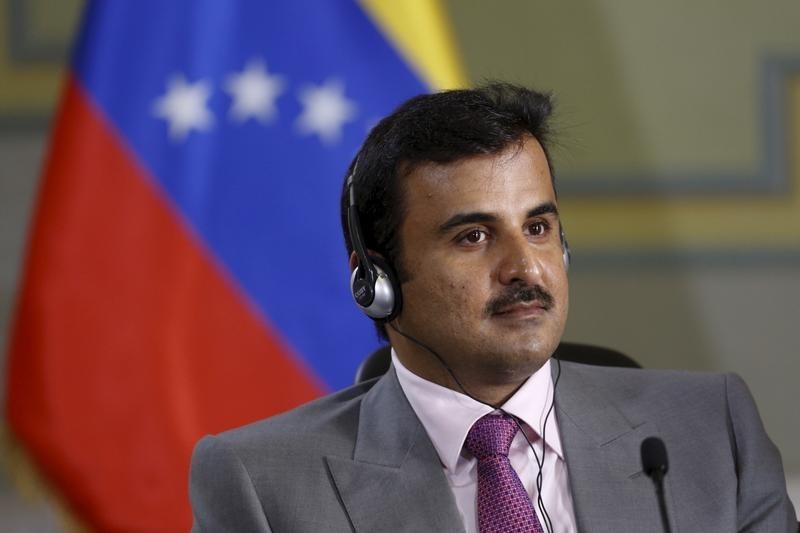DOHA (Reuters) - Qatar's emir issued a decree on Wednesday replacing the foreign minister and merging some portfolios, the state news agency said, in what was seen as a move to consolidate his power and cut costs after a sharp drop in oil prices.
The world's biggest exporter of liquefied natural gas, Qatar is one of the Gulf's richest countries, although the value of its energy exports almost halved last year.
The new foreign minister was named as Sheikh Mohammed bin Abdulrahman al-Thani, a member of the royal family.
Khalid al-Attiyah, the outgoing foreign minister whose father was the founder of the Qatari armed forces, will become state minister for defence affairs.
The emir, Sheikh Tamim bin Hamad al-Thani, who took over in 2013 after his father stepped down, holds the post of defence minister.
Late on Wednesday Sheikh Tamim said that Qatar needed to diversify its income and he urged an end to corruption. He said citizens should not "fear or panic" about the tumbling price of hydrocarbons.
"As citizens your responsibilities are greater due to the low oil prices; however, citizens' welfare and way of life should not be affected by the situation," he said in a speech carried by Qatari state news agency QNA.
Sheikh Tamim, like his Gulf neighbours, is seeking to diversify the economy to reduce Qatar's dependence on oil and gas, which the International Monetary Fund says constitute 90 per cent of government revenues.
He has used the slump in oil prices to emphasise that the government can no longer "provide for everything" for its population, and to encourage private sector employment.
Qatari is set to spend around $200 billion (131 billion pounds) on infrastructure projects over the next decade, many related to its hosting of the 2022 soccer World Cup.
Construction industry sources say some projects have been delayed or suspended in the past year, partly to avoid waste and ensure quality.
A Western diplomat in Doha said cost-cutting was one reason for the ministerial changes, following the sharp decline in oil prices. The decree merged several ministries, including communication and transport and culture, youth and sports, heralding the possibility of many job cuts.
"But this is also about Sheikh Tamim's slow consolidation of power after 2-1/2 years in the job," the diplomat said.
"He's still pushing out the old timers loyal to the former emir who were not necessarily that effective but couldn't be sacked all in one go."
The outgoing minister of state for defence affairs, Hamad bin Ali al-Attiyah, was appointed as an adviser to the emir with rank equivalent to a prime minister, QNA said.

The public health minister was also replaced.
